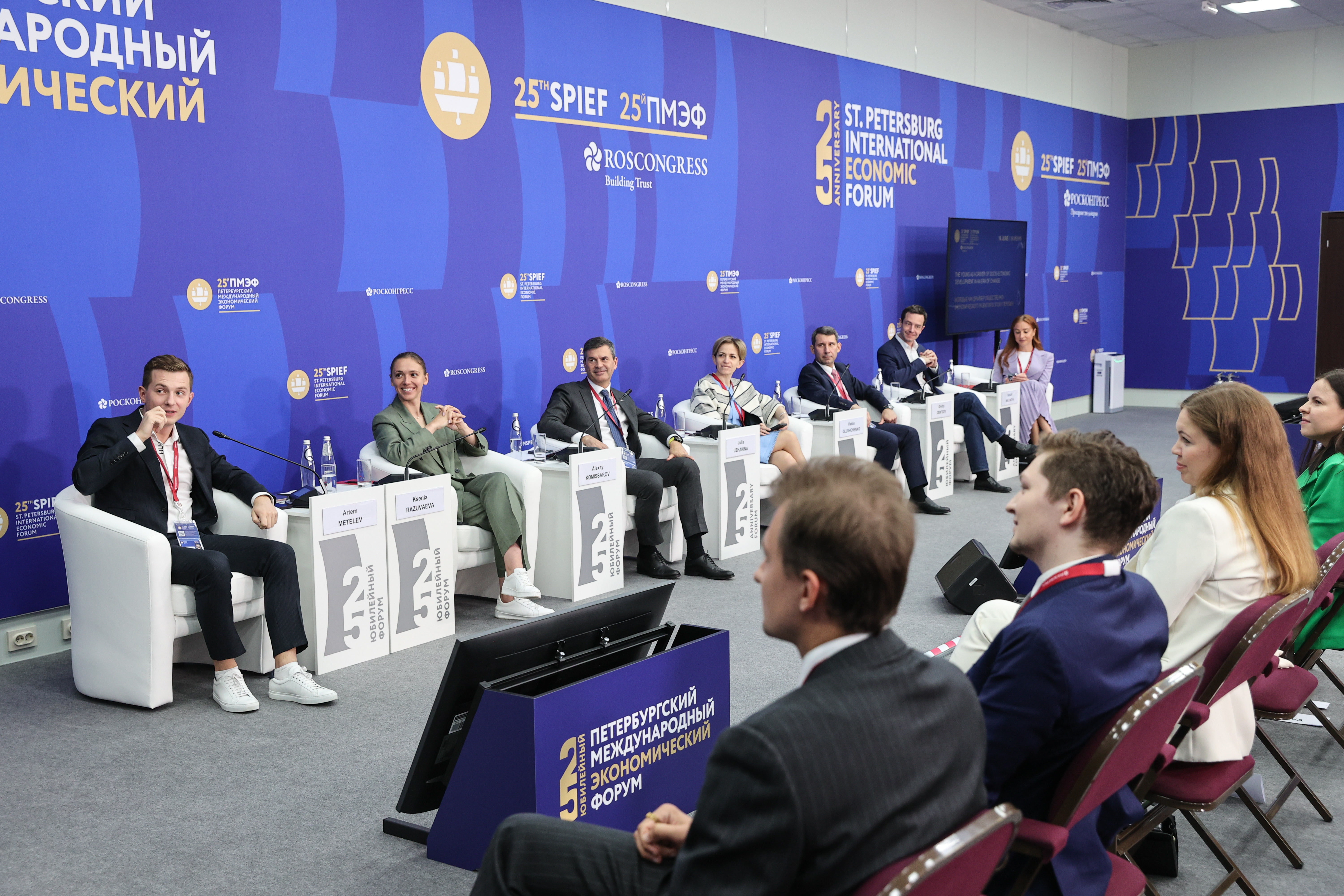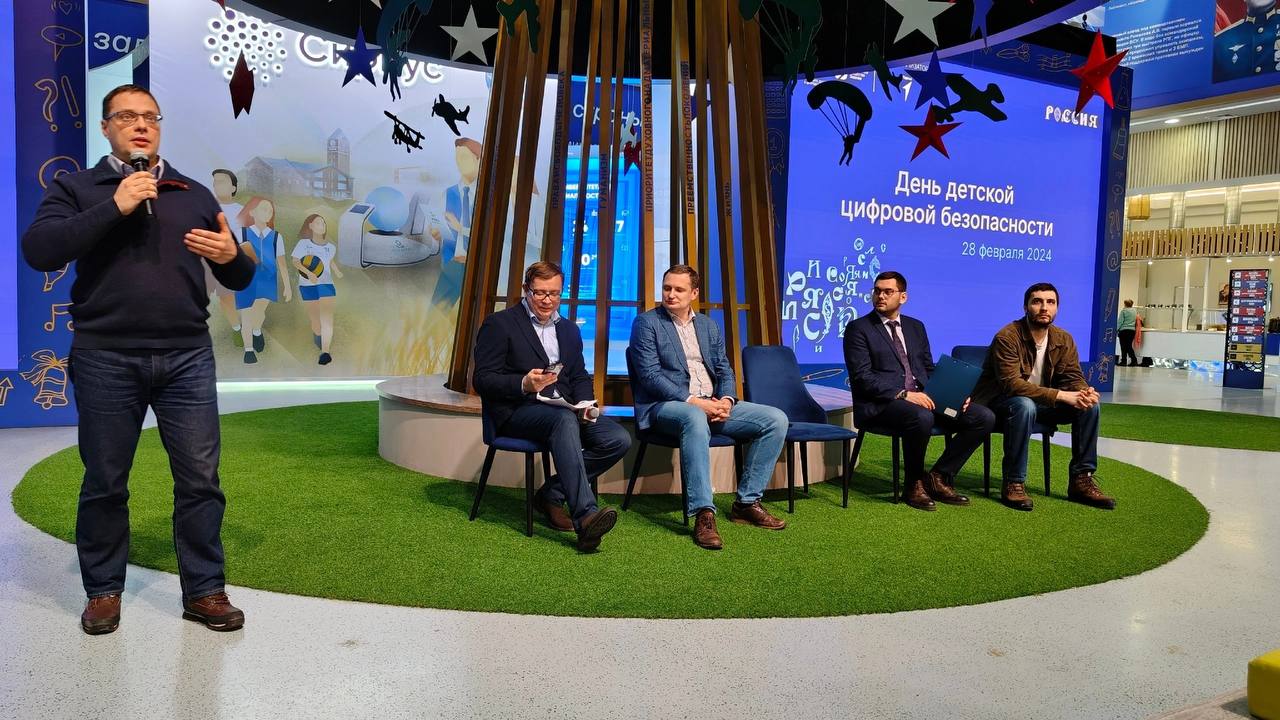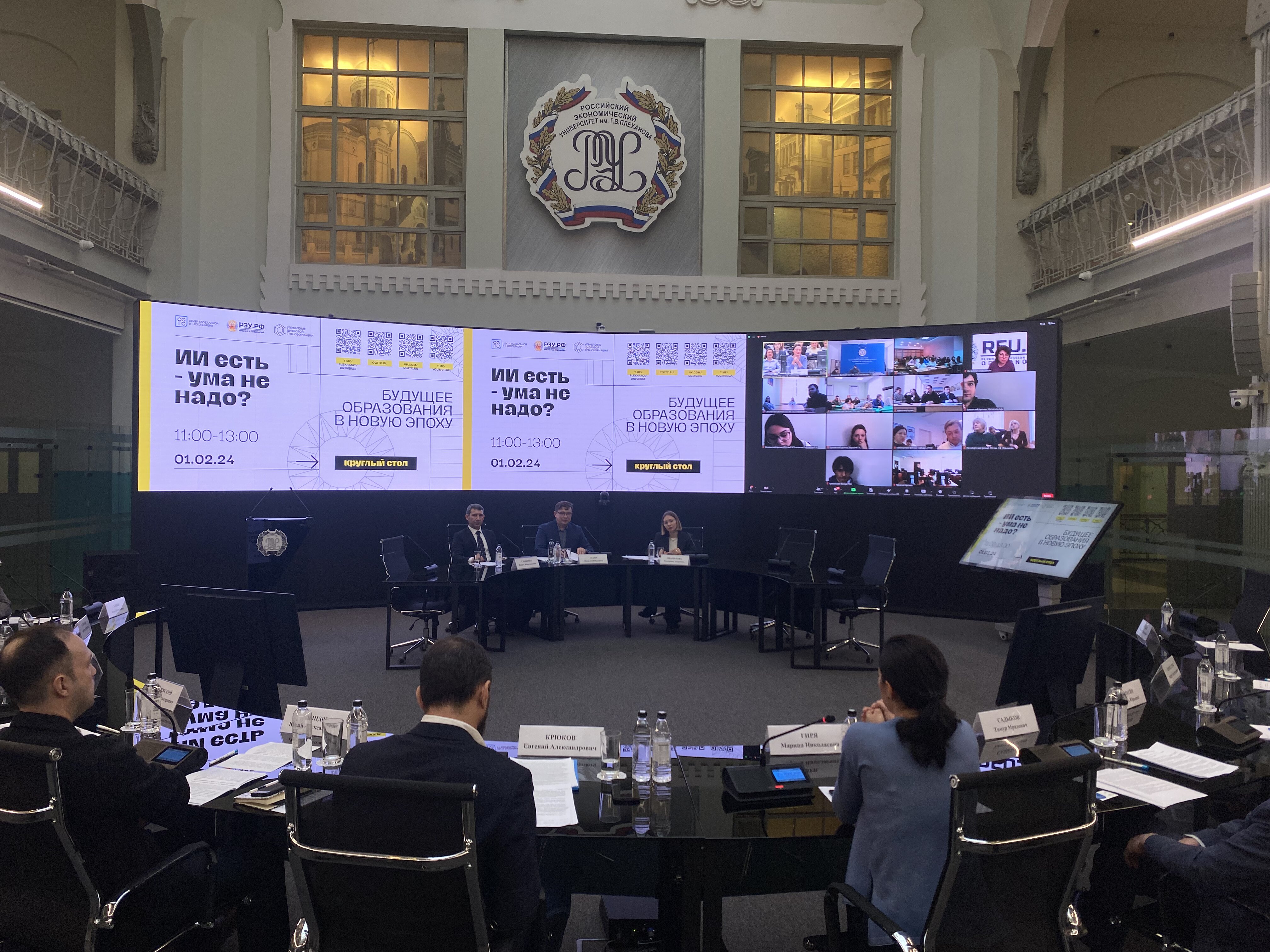Head of Federal Agency for Youth Affairs (Rosmolodezh) Ksenia Razuvaeva, General Director of ANO Russia—Land of Opportunity Alexey Komissarov, Vice Rector at National Research University Higher School of Economics Dmitry Zemtsov, CEO of Corporate Academy Rosatom Yulia Uzhakina, Director of the Center for Global IT-Cooperation Vadim Glushchenko and Vice President of VTB Bank Natalia Malinova participated in the discussion. The session was moderated by Artem Metelev, Chairman of the Committee of the State Duma of the Federal Assembly of the Russian Federation on Youth Policy.
The speakers discussed not only the ways young Russian experts can participate in the development of economy, including the digital economy, but also today’s rather pressing question of how to draw the youth into resolving the country’s socially significant problems. Ksenia Razuvaeva noted that Rosmolodezh is trying to engage young people in every project it’s working on. “We’re, in fact, making the task easier for ourselves, since it’s much easier to ask the audience what they want than to make it up. Today, young people are the ones who have real competitive advantage. First of all because they’ve got nothing to lose; secondly, they are much more adaptable to all kinds of conditions. Crisis is always a time of opportunity. And the youth have infinite opportunities,” she added.
Young people take a great interest in topics that older generations are often completely oblivious to, such as ecology, according to the findings of the study Alexey Komissarov spoke of. For example, 76 % of young people are ready to work only for those companies that embrace ESG principles, which makes the companies, in turn, change and adapt to the youth’s needs because otherwise they simply won’t be able to hire new employees and, therefore, will no longer make advances.
Yulia Uzhakina spoke of the work of the Corporate Academy Rosatom, “We’re looking for educated people. This is precisely what we want to see in every potential employee—education, in a broad sense of the word. Young people used to choose a profession before choosing a university. Now they choose a university before choosing a profession. We could go on and on about what kind of competencies one should possess to build a successful career. According to my experience, the ones who build a successful career do not think about it. And they usually have enough inspiration to do many things at once.” She also pointed out that today’s youth are versatile due to their contradictory interests, such as saving the whales and working at nuclear power plants, but it is their advantage as well.
Vadim Glushchenko spoke in detail about the Center’s activities targeting youth, including the organization of the Youth Internet Governance Forum and creating the Youth Digital Ombudsperson program. “We actively engage young people in the discussion of the future of the Internet and want to inspire them to collaborate more closely with Russian and global expert communities. As for the global community, it’s not that easy today; however, our forum is part of a UN initiative, so there’s something to look forward to,” he added. Director of the Center concluded his speech by announcing the launch of the business idea accelerator that will allow participants of the Youth Internet Governance Forum to implement their projects.
Since February 24, many students have found themselves in difficult situations: some of them, who went to participate in student exchange programs or internships in foreign companies, have been stuck abroad, with their cards blocked, and others have found themselves in a war zone, Dmitry Zemtsov said. “We created a university situation center, where people were ringing around our students, trying to help them. However, it was precisely then that I understood the extent to which this generation can adapt to all kinds of situations and quickly find solutions to problems,” he added.
The speakers concluded that today, there definitely are a lot of new opportunities opened up for the youth; however, the youth should be heard and listened to in the first place, which older generations do not always succeed at. To do that, they should get closer to young people, promote innovation, making it accessible to the youth, broaden support and give the younger generation confidence that their creative solutions are needed indeed.
The SPIEF is held from 15 to 18 June in St. Petersburg. The primary audience of the forum are heads of major Russian and foreign companies, heads of states and political leaders, heads of governments, deputy prime ministers, ministers, and governors. Over the years, the forum has become a leading global platform allowing members of the business community to meet and discuss the key economic issues facing Russia, emerging markets, and the world as a whole.





